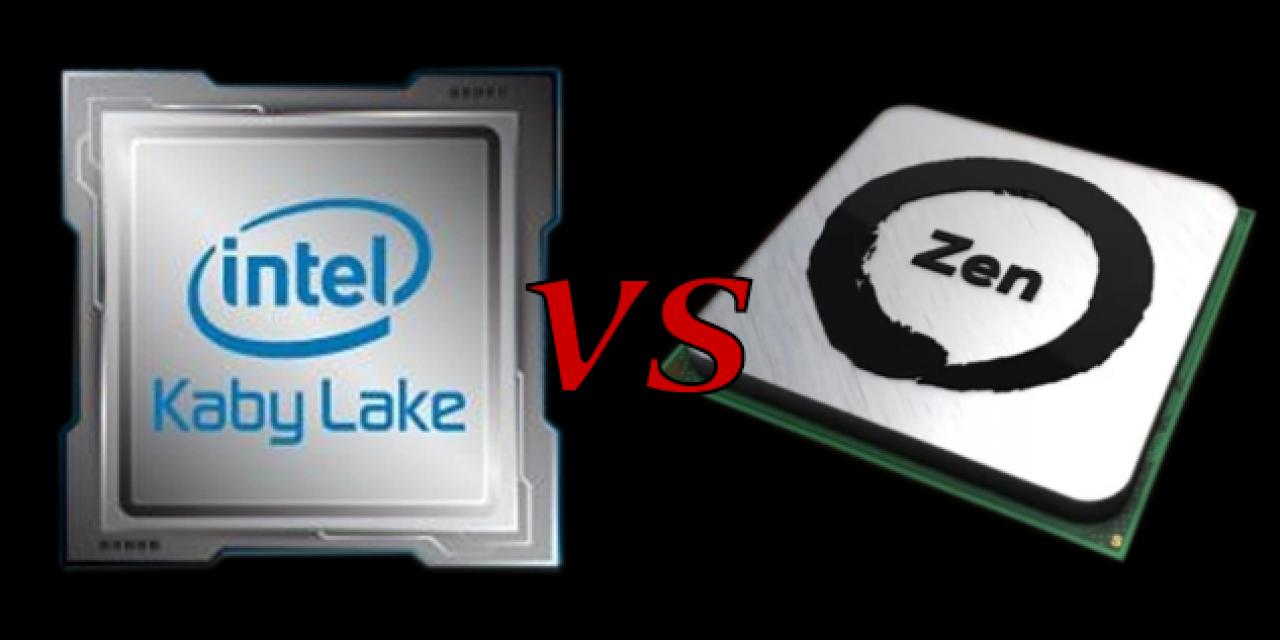
There are a lot of big names and big competition in the processor chip game these days. Whether you look at mobile dominant companies like Qualcomm, Intel on the desktop, classic competitors in the space like Hewlett Packard, or smaller competitors like Sun and MediaTek.
The big two we all think of though when we consider the best processor manufacturers in the world, are AMD and Intel. But that's somewhat of an antiquated comparison, because when it comes to performance in their respective fields, it's been a long time since there was much competition between the two.
Today if you're building a gaming PC for high-end performance, there aren't many people who are going to suggest you go AMD rather than Intel. If you were looking to buy a laptop or a games console, you're much more likely to find AMD hardware inside, but for desktops, especially those at the top end of the scale for gaming and the like, Intel CPUs are where it's at.
That wasn't always the case though. If you cast your mind back just over a decade ago, AMD offered a real fight to Intel and in-fact, before the Core architecture appeared, AMD's Athlon 64 chips were by far the CPUs of choice for serious PC enthusiasts and gamers. They were cooler, ran faster, overclocked better and were ultimately a more cost effective solution for gamers looking to get the best bang for buck from their hardware.
Intel of course countered with the aforementioned Conroe chips, but for a few years AMD was the real king. People bought up Opteron server chips because they clocked better, they laughed at their Intel counterparts for their toasty systems and they enjoyed the benefits of having top of the line AMD hardware for a while.
Unfortunately for those fans though, AMD has never recovered. Its follow up FX chips were decent, but not as capable as Intel's and the gap has only widened since. Bulldozer's release in 2011 was a catastrophe, as though multi-threaded applications showed real promise on AMD's multi-core hardware, single threaded applications – still the vast majority at the time – failed to perform anywhere near to what they did on Intel's hardware.
But that was a few years ago and today, we are starting to see the tide turn a little, leaving a lot of analysts excited for what's coming next.
Talk to any professional system builder today and they will tell you that AMD's FX chips can be clocked to be easily comparable with low end i3 and i5 CPUs from Intel, giving low-end MOBA and FPS gamers the chance to play at really high frame rates if they pair it up with a decent graphics card. That's something that just wasn't the case a few years ago and while it is perhaps indicative of CPUs becoming less important to the overall frame rate output compared to graphics cards, it also shows that AMD's architecture is much more applicable than it once was.
The real question though, is what happens when Zen is released. AMD's next generation micro-architecture, set to debut in the first or second quarter of 2017, has a lot of people excited. AMD reports that it will have a 40 percent improvement in instructions per clock over the last generation, which is the kind of jump we haven't seen in CPU hardware in many years. Intel's jumps have been anywhere from five, to 15 percent in recent years, so 40 is a big needle mover.
On top of that, we've seen benchmarks showing Zen performing comparably clock for clock with high-end Intel chips from the Skylake generation. While that does feel a little contrived, especially since AMD has a history of inflating its hardware's potential with specially picked benchmarks, it does show that Zen is a powerful architecture.
Based on a 14nm transistor base, Zen will be cooler and more efficient than its predecessors too, which means there's potential for overclocking. Indeed many wonder if we'll see 4GHz chips from AMD.
We may need to if we want it to truly compete head to head with Intel, but even if it required some fancy cooling to make happen, people would be willing to do it. Especially if AMD competed heavily on price as it is often wont to do. It may not be so able to do that this generation considering how high it's aiming on the performance scale, but it will be interesting to see.
As has been the trend in recent years too, AMD is driving hard for multi-threading support with the new chips, offering as many as 16 cores for high-end enthusiasts and gamers, all with AMD's version of Hyperthreading, known as simultaneous multithreading, which doubles the number of possible threads per core.
That's a potential for 32 threads running at once, which is practically unprecedented in the consumer space.
AMD is also finally supporting DDR4 with this release, which was another reason it lagged behind Intel in recent years. That, combined with its better utilisation of memory resources, should give much higher bandwidth on AMD systems.
The potential for this line of chips is huge, so those of us who have watched AMD evolve over the past couple of decades are cautiously excited about what it could do to the industry. In the past, when AMD has been able to compete directly with Intel we've seen huge leaps and bounds in processing performance in a very short period of time.
That just hasn't happened without that age old war. Here's hoping these two can battle it out for real once again and maybe AMD can even win a round or two, who knows.
How successful do you think Zen will be?
